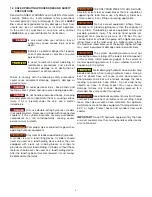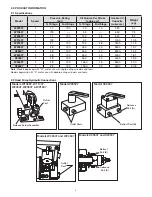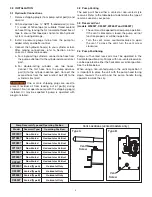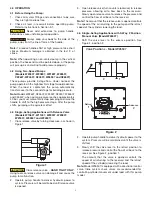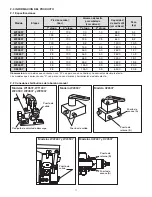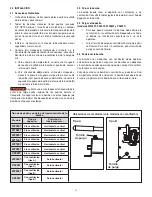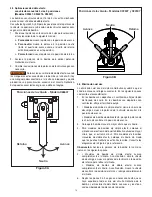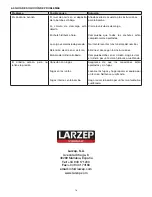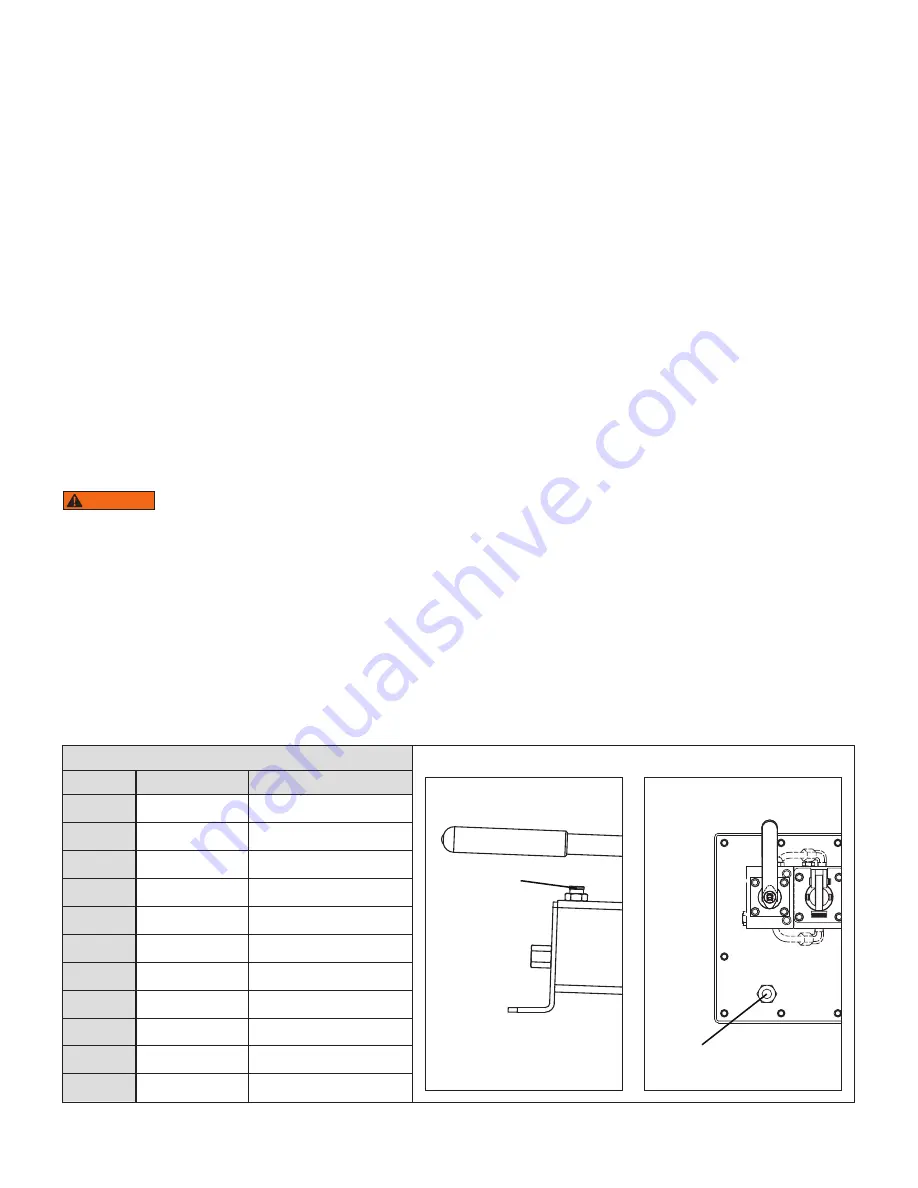
4
Pump Reservoir Type and Operating Position
Model
Reservoir Type:
Operating Position:
W20307
Non-Vented
Horizontal or Vertical
W10607
Non-Vented
Horizontal or Vertical
W20807
Non-Vented
Horizontal or Vertical
W11407
Non-Vented
Horizontal or Vertical
W21807
Non-Vented
Horizontal or Vertical
W22607
Non-Vented
Horizontal or Vertical
X22607
Non-Vented
Horizontal or Vertical
W24507
Vented (Type A)
Horizontal Only
X24507
Vented (Type A)
Horizontal Only
W26507
Vented (Type B)
Horizontal Only
X26507
Vented (Type B)
Horizontal Only
3.0 INSTALLATION
3.1 Hydraulic Connections
1. Remove shipping plug(s) from pump outlet port(s) and
discard.
2. All hand pumps have ⅜" NPTF threaded port(s). Use
1 1/2 wraps of Teflon tape (or suitable thread sealant)
on hose fitting, leaving the first complete thread free of
tape to ensure that tape does not enter into hydraulic
system, causing damage.
3. Install a pressure gauge in-line from the pump for
added safety and better control.
4. Connect the hydraulic hose(s) to your cylinder or tool.
After making connections, refer to Section 4.6 for
correct air removal procedure.
a. For single-acting cylinders, connect one hose from
the pump outlet port to the cylinder advance/retract
port.
b. For double-acting cylinders, use two hoses.
Connect the first hose from the pump advance
port (A) to the cylinder advance port. Connect the
second hose from the pump retract port (B) to the
cylinder retract port.
WARNING
One or more shipping plugs are used to
prevent residual oil from leaking out of port(s) during
shipment. Do not operate pump with the shipping plug(s)
installed. Oil may be expelled if pump is operated with
plug(s) installed.
3.2 Pump Venting
The pump will have either a vented or non-vented style
reservoir. Refer to the table below to determine the type of
reservoir used on your pump.
3.3 Reservoir Vent
(models W24507, X24507, W26507 and X26507)
• The vent must be opened to allow pump operation.
If the vent is blocked or closed, the pump will not
function properly or will be inoperative.
• Turn the vent screw counterclockwise to open
the vent. To close the vent, turn the vent screw
clockwise.
3.4 Pump Positioning
Pumps with vented reservoirs must be operated in the
horizontal position only. Pumps with non-vented reservoirs
can be operated in either the horizontal or vertical position.
See the table below.
When using a non-vented pump in the vertical position it
is important to place the unit with the pump head facing
down towards the earth and the pump handle facing
upwards towards the sky.
Vent Locations (vented models only)
Type A
Vent
Screw
Vent
Screw
Type B


